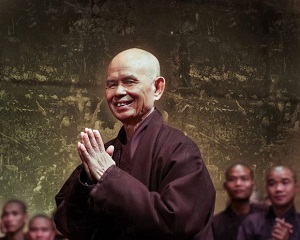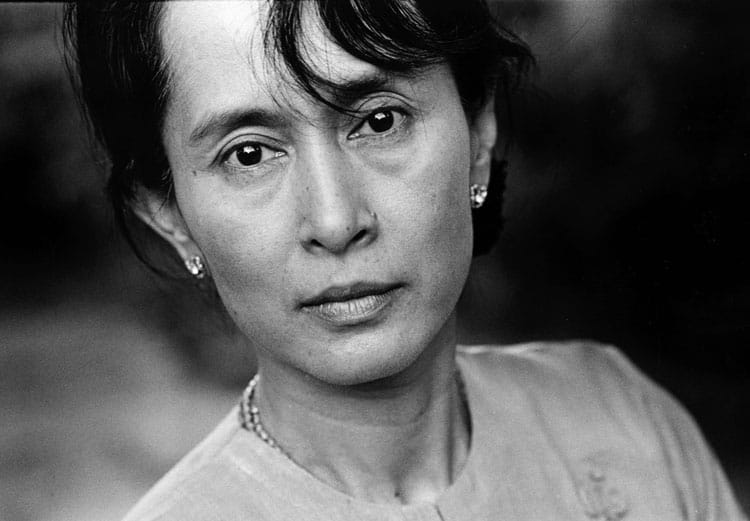- 87Share on Facebook (Opens in new window)87
- Click to share on Google+ (Opens in new window)
- Click to share on Pinterest (Opens in new window)
- Click to email this to a friend (Opens in new window)
Over the course of nine month—from October, 1995 to June, 1996—I had an exceptional series of conversations with a unique woman and, currently, the world’s most famous political dissident. Burma’s Aung San Suu Kyi is, in the words of Vaclav Havel, one of the outstanding examples of the power of the powerless.
Aung San Suu Kyi told me her own story in many conversations at her home in Rangoon. The full record of our dialogue is presented in The Voice of Hope, from Seven Stories Press. It was a journey into the soul of the struggle for freedom in this southeast Asian nation of 45 million people, many of whom, at this very moment, may be risking their lives to win the right to choose their destiny.
After having spent some eight years as a monk in a Rangoon monastery, I returned to Burma in October 1995 never having met or spoken to Aung San Suu Kyi. Yet she was not unknown to me. I had written and spoken extensively on political developments in Burma, and from everything I had learned, I was fascinated by Aung San Suu Kyi, as were so many others. She offered me, as she does to all, a great vision that places self-respect, human dignity, compassion and love above material considerations. Placed under house arrest, separated from her family for years at a time, she kept silent, and so grew into a living legend. Finally, once again speaking defiantly and acting boldly to unlock the prison doors of the SLORC military dictatorship, she will not be stopped.
This is the Aung San Suu Kyi that I came to know—a dynamic woman with an unshakable conviction, inseparable from her principles and sustained by a sense of justice and duty. She abhors hypocrisy, while admitting her own shortcomings. Her compassion is tangible. The one quality that I feel best defines her is sincerity, at the core of which is her conviction in self-improvement. Aung San Suu Kyi is a seeker, one who makes her life a vehicle for an awakening to deeper and deeper truths.
She wears her spirituality quietly, unpretentiously, and with subtlety. But this casualness makes it all the more delightful. She laughs freely and easily. Her voice is harmonious and sweet; her words are so simple at times as to take you by surprise, yet spoken without equivocation. She is straight and direct.
Does she have faults? She would be the first to admit having some. Was I satisfied with my conversations with her? Ultimately I wanted more than she was willing to give. Aung San Suu Kyi is a fiercely private woman, secret about her personal life and any aspect of her inner world that she deems private. I found her to be like a sealed vault in some areas and an open universe in others. Aung San Suu Kyi is her own person in every sense and it was this aspect of our time together that I most appreciated: a woman enjoying her sovereignty and happiness while fighting for the independence of others.
 Thich Nhat Hanh, 89, suffered a severe stroke a year ago and is recovering in California. Bishop Martin Amos of the Diocese of Davenport will meet on Oct. 30 in California with a representative of Nhat Hanh and 120 Vietnamese monastics. They will accept the honor on their leader's behalf.
Thich Nhat Hanh, 89, suffered a severe stroke a year ago and is recovering in California. Bishop Martin Amos of the Diocese of Davenport will meet on Oct. 30 in California with a representative of Nhat Hanh and 120 Vietnamese monastics. They will accept the honor on their leader's behalf.

 "
"

